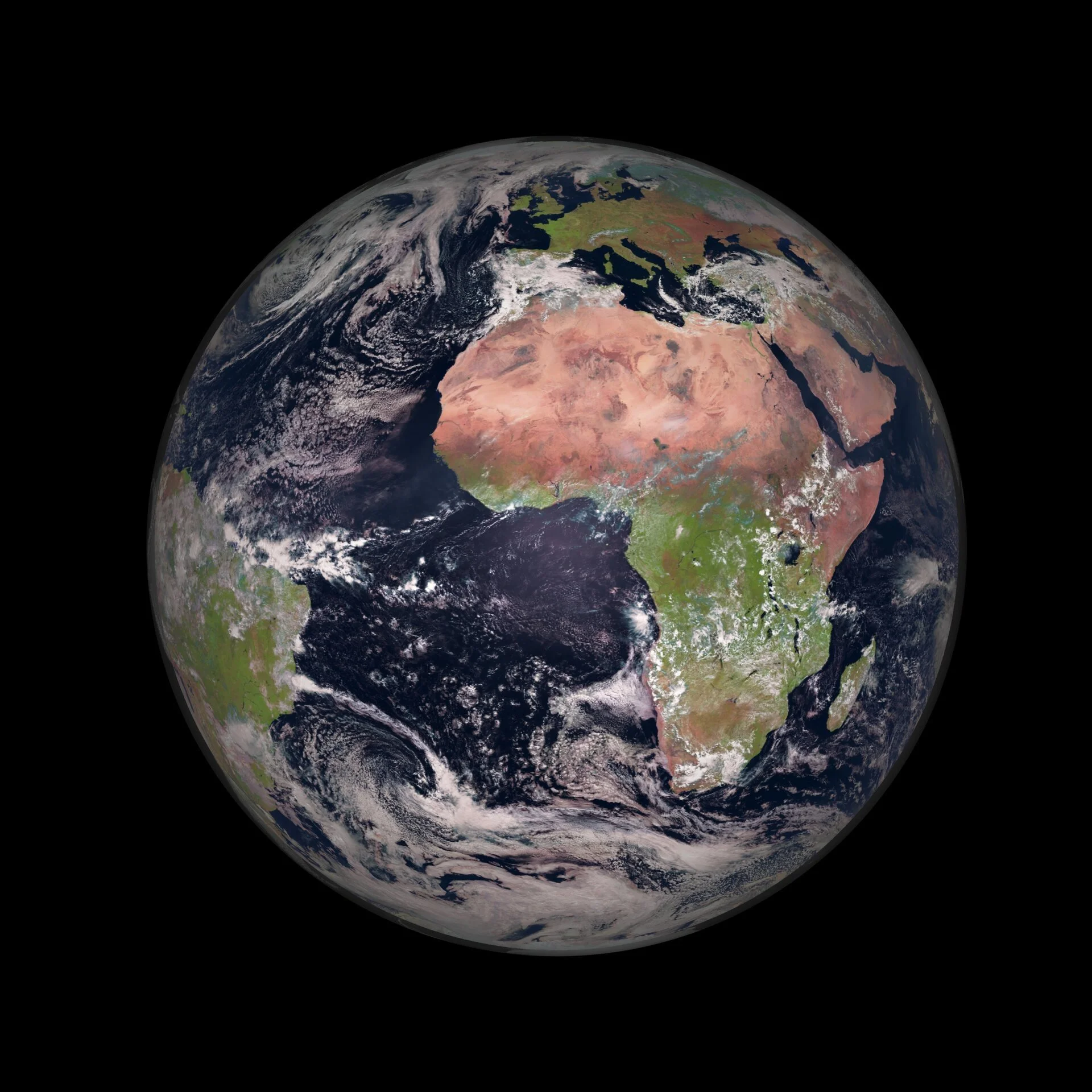Thales Alenia Space to Lead Carb-Chaser Project, the First French Constellation to Monitor Human-Induced CO₂ Emissions
Image of the Earth from Meteosat Third Generation first imaging satellite (MTG-I1). Copyright EUMETSAT ESA
Thales Alenia Space, the joint venture between Thales (67%) and Leonardo (33%), is pleased to unveil the Carb-Chaser project. This innovative program is based on a constellation of new-generation satellites specially designed to detect and measure human-induced carbon dioxide (CO₂) emissions, in particular from industrial sites.
Carb-Chaser’s compact architecture will combine efficiency and cost control to meet the needs of carbon monitoring markets.
The project is funded by the French government as part of the France 2030 stimulus plan and will allow the company to mature the payload, finalize constellation sizing and define the precursor satellite.
Optical technology at the cutting edge of innovation
Each Carb-Chaser satellite will carry a hyper-compact multispectral interferometer. These highly innovative instruments are made possible by miniaturizing key technologies used in major programs such as the Meteosat geostationary weather satellites and Copernicus, with its 12 European environmental monitoring missions. They will offer the capability to locate individual CO₂ plumes and attribute their source to a specific industrial facility, even in complex atmospheric conditions (wind, aerosols, water vapor, etc.).
Based on a Thales Alenia Space proprietary patented technology, this multispectral interferometry approach marks a breakthrough in terms of dependability and performance, further enhancing the ability of these satellites to offer reliable operational data with shorter revisit cycles to establish an overview of industrial sites on a global scale.
Certified data for strategic applications
The future Carb-Chaser constellation will provide independent, verifiable and certified CO₂ measurements spanning the entire value chain, including carbon services markets. Thanks to its high-precision geolocation capability, emissions will be accurately attributed to specific industrial facilities. These data will then be verified by in-situ surveys performed directly at the sites concerned.
Measurements will also be certified by the French Space Agency (CNES), the European Space Agency (ESA) and scientific experts specializing in atmospheric studies. This official validation will ensure these data can be included in regulatory frameworks, especially for carbon quota systems and carbon border adjustment mechanisms.
Complementary fit with major European space missions for environmental monitoring
Carb-Chaser will operate in synergy with existing European programs dedicated to measuring carbon emissions, such as MicroCarb and CO2M. While MicroCarb is a scientific mission to assess CO₂ fluxes on a global scale, and CO2M will measure human-induced CO₂ on a regional scale, Carb-Chaser will monitor local-scale emissions. Carb-Chaser data will also be used in conjunction with data from the CO2M program to compile atmospheric inventories and track progress toward climate goals.
These three missions, while distinct, will complement and feed into each other to provide a global, integrated picture of carbon emissions and support international efforts to reduce the impact of human activities on the climate.
A French consortium at the heart of industrial innovation
Led by Thales Alenia Space, the Carb-Chaser project brings together a consortium of dynamic French SMEs such as U-Space, WaltR, Everimpact, SPASCIA and QAIrbon, as well as the IRT Saint Exupéry technological research institute. Together, the partners will combine their expertise to accelerate the ecological transition while strengthening Europe’s technological sovereignty. In addition to the scientific advances it will deliver, Carb-Chaser will have a direct economic impact on key regions of the French space industry, including Occitania, Brittany and the PACA region (Provence-Alpes-Côte d’Azur).
As part of the ambitious France 2030 strategy, Carb-Chaser reflects France and Europe’s determination to become world leaders in carbon emissions monitoring. This pioneering program marks a decisive step forward in efforts to combat climate change and opens the way to new markets for space technologies.
About France 2030
Devised in consultation with local and European business and academic partners, France 2030 offers the country exceptional resources to meet the ecological, demographic, economic, industrial and social challenges of today’s changing world. This unprecedented plan for innovation and industry reflects a dual ambition. First, sustainably transform key sectors of our economy — such as energy, automotive, aerospace, digital and space — through innovation and industrial investment. And second, position France not just as a player, but as a leader in the economy of the future.
